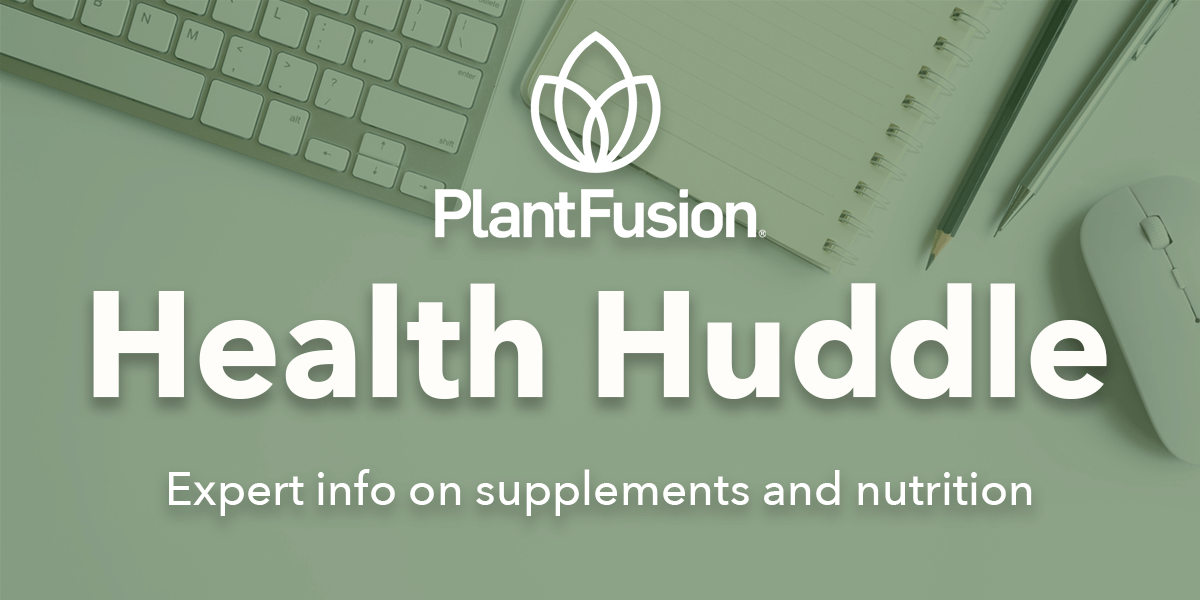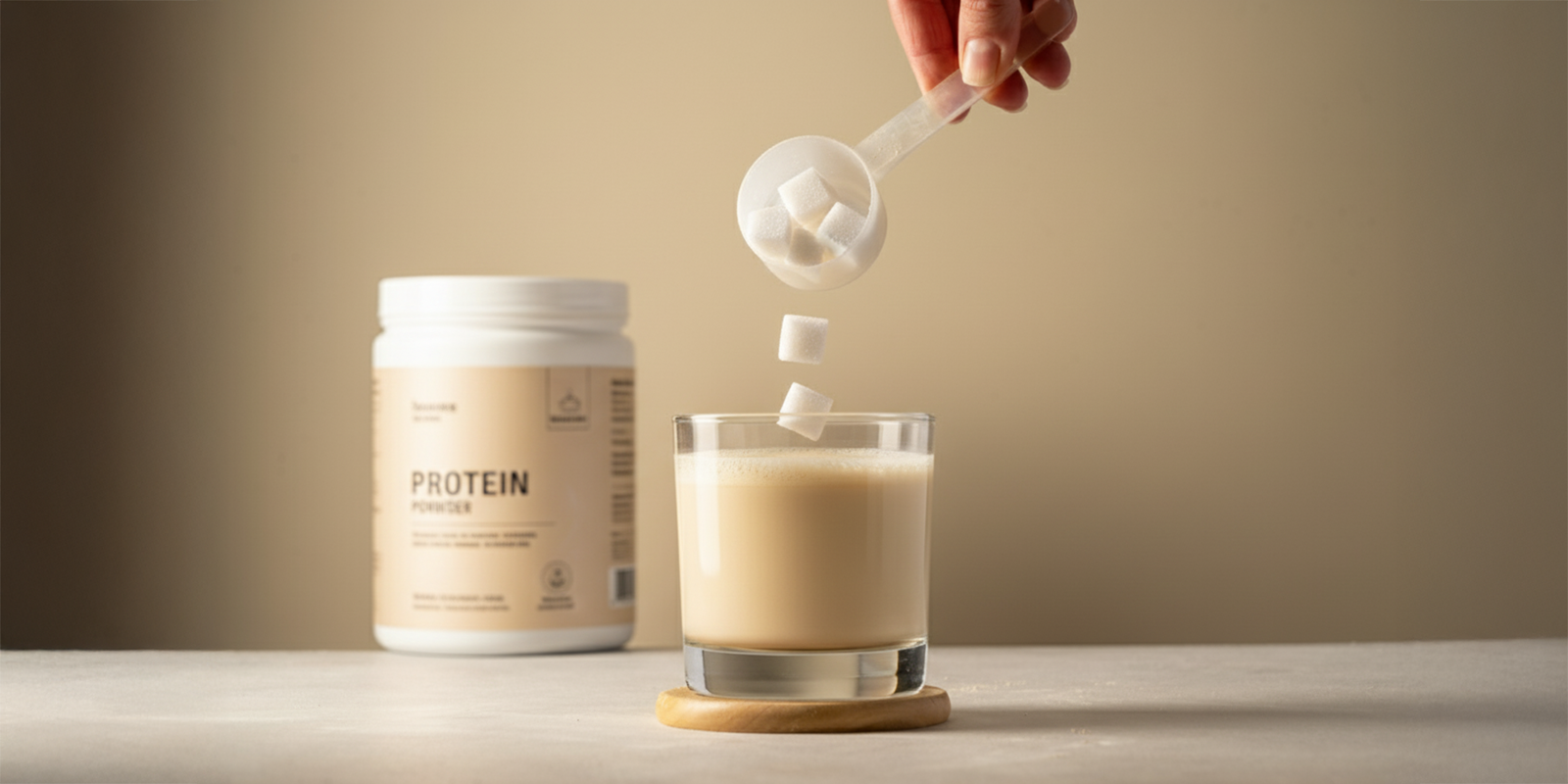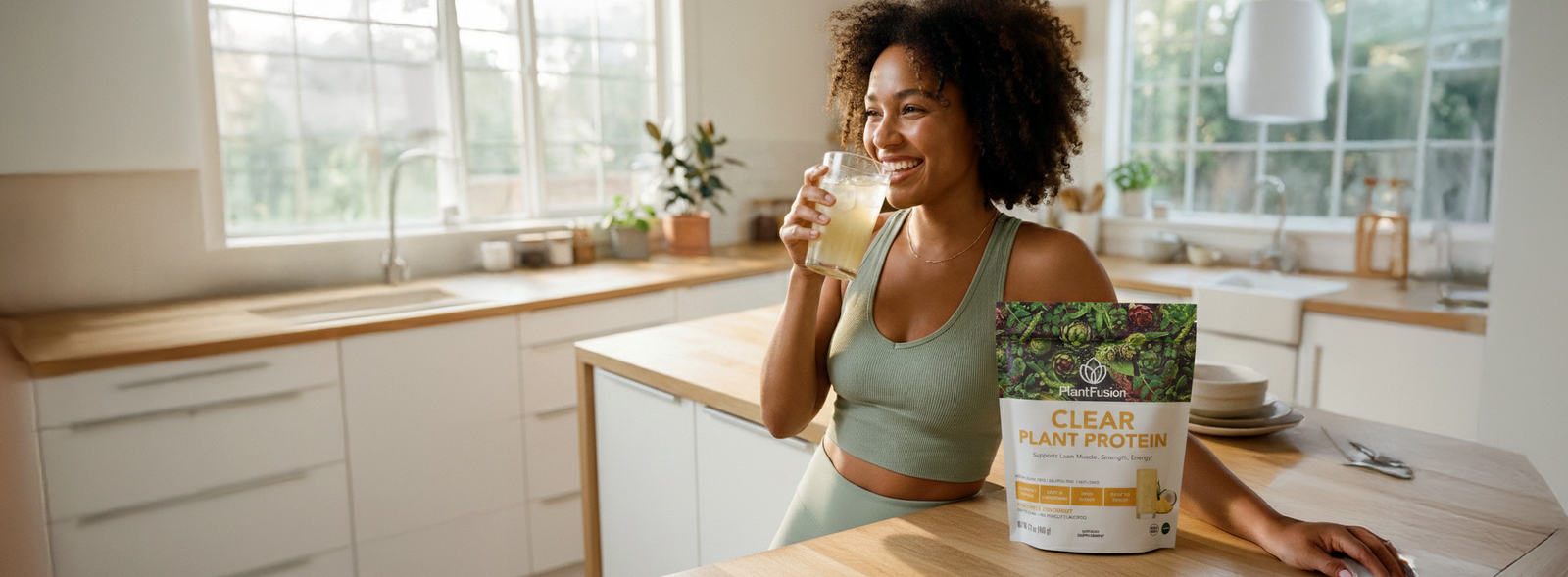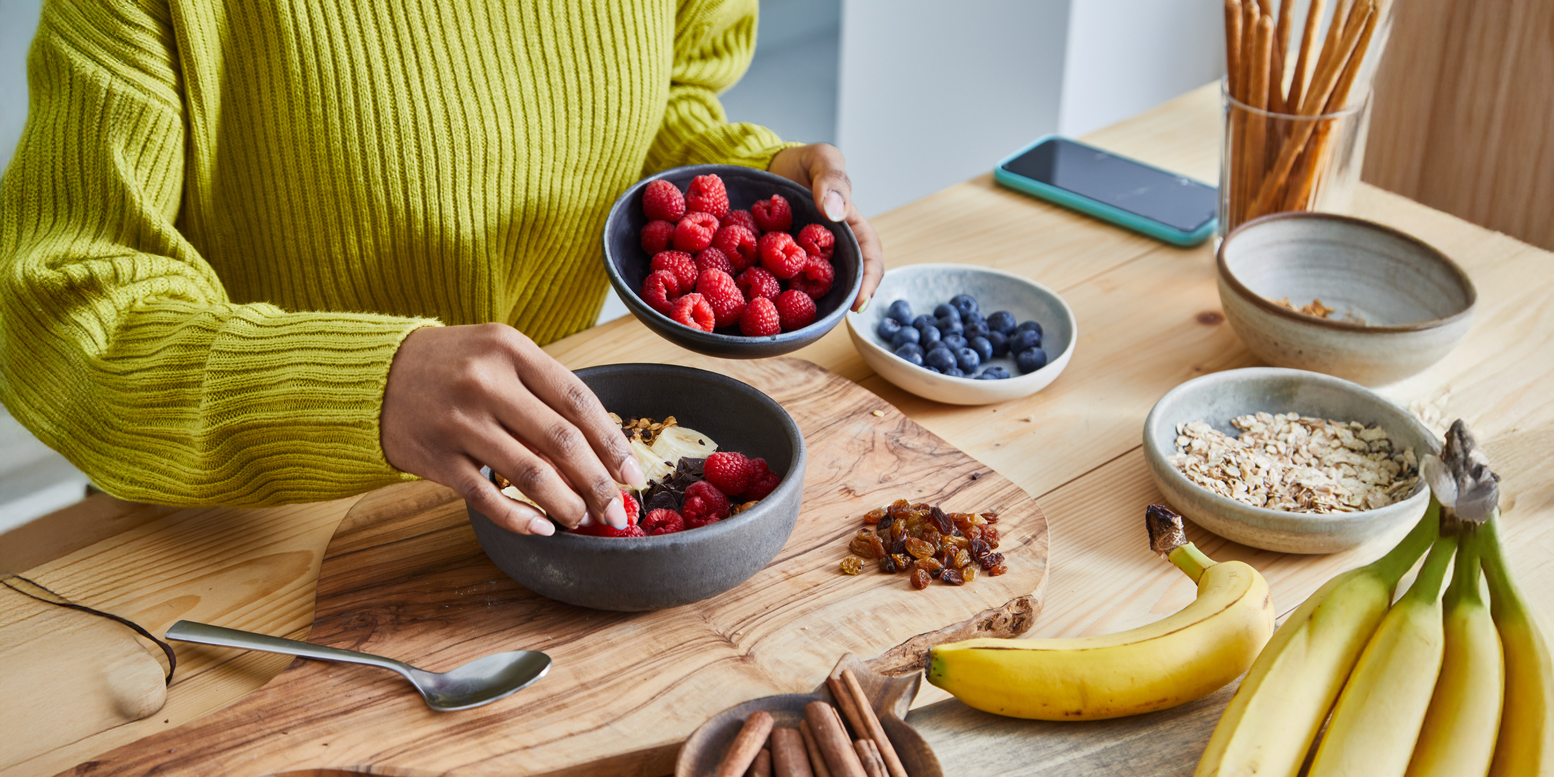Most of us wouldn’t dump sugar into a post-exercise smoothie. But chances are your “clean” or “healthy” choice has more sugar than you think. The word “sugar” may never appear on the label — there are dozens of sneaky synonyms — and there are also loopholes that can make nutrition panels look far better than they have any right to.
This is the other side of the wellness marketing story, and it’s time to look more closely.
Sugar by Another Name: How Brands Hide the Sweet Stuff
You hardly ever see sugar just called “sugar.” Instead, it operates under more than 50 different names. Chances are, you look at the label of your protein powder, collagen booster, or pre-workout and see something like:
- Maltodextrin
- Brown rice syrup
- Fructose
- Agave nectar
- Cane juice crystals
- Evaporated cane syrup
Even “natural” sweeteners can spike blood sugar or throw off gut balance. There’s also the new wave of sugar substitutes — erythritol, sucralose, and acesulfame potassium — which taste sweet but can send some people into an endless spiral of craving or bring with them digestive discomfort.
If it sounds like syrup, has a name that ends in “-ose,” or looks like it belongs in the lab of a chemist, then it most likely is sugar.
The Problem With Hidden Sugars
You may believe that a gram or two of this or that wouldn’t matter much. But over time, all that hidden sugar adds up — not just in calories, but in the way your body operates.
Blood Sugar Spikes & Crashes
Even the so-called “low glycemic” sweeteners can lead to ups and downs that end in feeling wiped out, craving more sugar, and looking for your next fix — just the opposite of what most people need from their supplements.
Gut Imbalance
Sugar and some sugar alcohols can feed the wrong bacteria in the gut, resulting in bloating, fatigue, and inflammation. Ironically, what that gut doesn’t need — fake sugar and “natural fibers” — is being disguised by many “digestive support” or “lean” formulas as prebiotics.
False Health Halos
We know the way sugar is supposed to work in the body, but few of us understand how well it can hide. A “No Added Sugar” label can even contain more than one sweetener that functions similarly. Those claims are technically legal but wildly misleading.
Marketing Tricks: “Clean” Label Lies
Stroll the supplement aisle and you’ll find plenty of soothing claims about those products: “No added sugar.” “Naturally sweetened.” “Lightly flavored.” But what those labels don’t tell you can make all the difference.
Here’s how the illusion works:
- Label loopholes: Ingredients added for sweetening that are not strictly “sugar” under FDA rules may not have to be labeled as such.
- Proprietary blends: Some brands list a group of ingredients as one vague term — such as “flavor system” — without indicating they contain sweeteners.
- Stuff that’s naturopathie, Redo: Brown rice syrup and agave sound natural, but they’re both high-glycemic sugars that function nearly exactly like table sugar in the body.
If a protein powder has 20 grams of protein, and also seven grams of “natural syrup,” it’s not health food — it’s dessert with marketing.
How to Read Labels Like a Pro
These red flags may be easy to miss, but once you know what to look for, they’re impossible not to see.
- Check the ingredient list first. Ingredients are listed in order of weight — if sweeteners are among the first five, the product is sweetened.
- Look beyond the Nutrition Facts. If a product contains sugar alcohols or artificial sweeteners, it can legally say “0g sugar.” Always read the ingredient list.
- Decode the carbs-to-protein ratio. It definitely has hidden sugars if a 25g protein powder has 8g of carbs without any fiber.
- Beware the “blend.” When the sweetener is not mentioned, just assume that it is present. When buzzwords like “flavor blend” or “proprietary sweetener” appear, the labels are often hiding sugar systems.
What Clean Really Means
At PlantFusion, clean means so much more than what’s on the label.
That means:
- No sugar added or artificial sweeteners
- No covert syrups, fillers, or masking agents
- No misleading “flavor systems”
PlantFusion doesn’t use artificial sweeteners, either, but opts for plant-based sweeteners such as stevia leaf extract and monk fruit that won’t spike blood sugar or cause digestion issues. While you’ll see “natural flavors” listed on our labels, these are plant-derived flavor components — not hidden sugars. Every formula is balanced through well-considered flavor blending, not a dash of chemical this or that.
The Value of Knowing Your Stuff
Clean nutrition starts with awareness. The supplement business is built on big marketing and tiny print — but you have the power to make better choices; it’s right in your hands and also on the label.
After you learn how sugar manages to get into your supplements, the merry band of elves on that label can take a hike. You will come to select what has substance and what does not — in other words, you’ll choose what truly nourishes.
That is where real results start — with supplements as true to your goals as you are.
Because your protein powder should be feeding your progress, not your sweet tooth.















